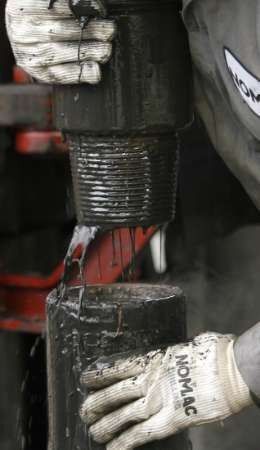Poland Looks to Shale Crude and Shale Gas

Polish oil pipeline operator PERN hopes to build pipelines to carry crude oil that could flow from the country's potentially profitable shale reserves, according to Reuters.
PERN operates the country's pipelines and transports Russian crude to Polish refineries. Details regarding the exact size and location of the project are expected to be announced in August or September.
The company has however submitted an offer for the construction of a new crude oil terminal in the northern port city of Gdansk.
A report by Poland's geological institute estimated shale crude reserves at between 215 and 268 million tonnes. If accurate, the country may have enough reserves to cover its total oil consumption for at least 10 years.
However, potentially vast shale crude resources have overshadowed Poland's estimated shale gas reserves.
Poland developed high hopes of shale gas after a study by the U.S. Energy Information Association estimated Polish reserves at 5.3 trillion cubic meters in 2011, enough to cover domestic demand for around 300 years.
In its own study however, Poland estimated its shale gas reserves at 346-768 billion cubic meters. Though this is much less than estimated in the U.S. report, investments are still pouring in.
Exxon Mobil, Chevron, Marathon, and Royal Dutch Shell have all committed to exploring Poland for shale gas.
Currently, Poland is reliant on coal and natural gas imports from Russian giant, Gazprom. With political tension between the two countries, Poland might be keen to exploit its resources and to diversify imports away from costly Russian energy.
As of now, Russia provides around a half of Poland's gas and 25 percent of EU consumption.
The technology behind shale gas production is hydraulic fracturing, also known as fracking. Fracking harvests natural gas trapped in underground rock known as shale rock. After drilling vertically and horizontally, sand, water, and chemicals are pumped into a well. This cracks or fractures the rock and released the trapped natural gasses.
However, fracking is controversial. It requires vast amounts of water and is reported to create large quantities of methane. It is also thought to pollute water sources near production sites.
Regardless, this process has led to the drilling of thousands of wells in the U.S. and a guaranteed supply of gas for an approximately 100 years. The U.S. has become the world's lowest-cost producer of natural gas at a cost of $2 per thousand cubic feet. Many European countries, including Poland, have to pay seven times as much to Russia.
This kind of success in the U.S. has encouraged shale exploration in Poland, despites possible environmental consequences.
Though a source of optimism for Polish energy, shale gas projects in Poland along with those in Romania, Ukraine and China are not guaranteed to succeed and may not come into production until the next decade, according to the Financial Times.
There are still many questions surrounding Poland's energy reserves. Shale gas has tremendous possibilities, but the reserves may not respond to fracking in the same way as U.S. and Canadian shale. If it does not respond in a similar manner, shale gas in Poland may not be as profitable as many hope. Furthermore, Poland will need to provide the necessary infrastructure to develop shale gas production.
With PERN's plans to build a pipeline to carry Polish shale crude, it is clear that Poland is taking great efforts to reduce its reliance on Russian gas supplies, and expand its own energy production through shale crude and shale gas. The prospects are quite enticing, though results may take years on both fronts.
© Copyright IBTimes 2024. All rights reserved.





















